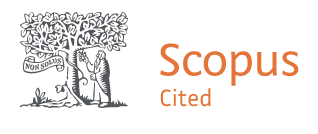Emotional Intelligences Influence on Confrontation Resolving Skills of Principals at School Administration
DOI:
https://doi.org/10.55324/iss.v2i5.399Keywords:
emotional intelligence, confrontation resolving skills, school administrationAbstract
Background: School consists of complex network of social relations, built and maintained by bridging the gap between significant behavioral modifications. The quality of these relations defines the organizational culture. Thus, administrative atmosphere depends upon social skills as communication, attitude and response of their co-worker.
Aim: The purpose of this study was to observe the relationship between school principal’s emotional intelligence and confrontational resolving skills.
Method: Partial correlation was conducted to survey the degree of relationships between principal’s emotional intelligence and confrontational resolving skills for the effect of school as an administration, Data analysis was utilized to examine the combined effect of principal’s emotional intelligence quotient and confrontational resolving skills on principal’s achievement. The study population consisted of 72 school principals and 732 teachers within Batticaloa District schools in Sri Lanka. Quantitative data were collected and openly available consistent test pass percentage data.
Findings: The data examination using SPSS and MS Excel showed that the principals have a very high or a high emotional intelligence and they generally use collaborating style of conflict resolution. Emotional Intelligence (EI) and conflict resolution styles (CRS) are 75% related with each other.
References
Bohlander, K. M. H. (2010). Predictor variables of constructive and destructive conflict behavior. Allied Academies International Conference. Academy of Organizational Culture, Communications and Conflict. Proceedings, 15(2).
Chen, J., & Guo, W. (2020). Emotional intelligence can make a difference: The impact of principals’ emotional intelligence on teaching strategy mediated by instructional leadership. Educational Management Administration and Leadership, 48(1). https://doi.org/10.1177/1741143218781066
Dumbrav?, G. (2011). Workplace relations and emotional intelligence. Annals of the University of Petro?ani Economics, 11(3).
Gómez-Leal, R., Holzer, A. A., Bradley, C., Fernández-Berrocal, P., & Patti, J. (2022). The relationship between emotional intelligence and leadership in school leaders: a systematic review. In Cambridge Journal of Education (Vol. 52, Issue 1). https://doi.org/10.1080/0305764X.2021.1927987
Henderson, R. W., & Cunningham, L. (2023). Creating interactive sociocultural environments for self-regulated learning. In Self-regulation of learning and performance (pp. 255–281). Routledge.
Ikeda, E., Hinckson, E., Witten, K., & Smith, M. (2019). Assessment of direct and indirect associations between children active school travel and environmental, household and child factors using structural equation modelling. International Journal of Behavioral Nutrition and Physical Activity, 16(1). https://doi.org/10.1186/s12966-019-0794-5
Jazeel, A. M., & Saravanakumar, A. R. (2016). Role of ICT in transforming Sri Lankan higher education. International Journal of Advanced Research Trends in Engineering and Technology (IJARTET), 3(20).
Kanesan, P., & Fauzan, N. (2019). Models of emotional intelligence: A review. E-Bangi, 16, 1–9.
Khalili, A. (2012). The role of emotional intelligence in the workplace: A literature review. International Journal of Psychological Studies, 4(3).
Krishnaveni, R., & Deepa, R. (2011). Emotional intelligence?: A soft tool for competitive advantage in the organizational context. IUP Journal of Soft Skills, 5(2).
Mejbri, N., Essalmi, F., Jemni, M., & Alyoubi, B. A. (2022). Trends in the use of affective computing in e-learning environments. Education and Information Technologies, 27(3). https://doi.org/10.1007/s10639-021-10769-9
Panda, S. S., & Banik, K. (2020). Women leadership: Use emotional intelligence to transform the culture of an organization. Srusti Management Review, 13(1).
Rivai, N., Masdupi, E., & Syahrizal, S. (2019). Effect of emotional intelligence, work environment, and work stress on work productivity. 2nd Padang International Conference on Education, Economics, Business and Accounting (PICEEBA-2 2018), 218–226. https://doi.org/10.2991/piceeba2-18.2019.29
Salman, D. A., & Auso, K. A. (2022). The sequential influence of creative leadership and organizational environment on strategic performance. Journal of Environmental & Public Health.
Salovey, P., & Grewal, D. (2005). The science of emotional intelligence. In Current Directions in Psychological Science (Vol. 14, Issue 6). https://doi.org/10.1111/j.0963-7214.2005.00381.x
Saravanakumar, A. R., & Devi, K. R. P. (2020). Indian higher education: Issues and opportunities. In Journal of Critical Reviews (Vol. 7, Issue 2). https://doi.org/10.31838/jcr.07.02.101
Savarnakumar, A. R. (2008). Effectiveness of motivational strategies on enhancing academic achievement. Journal of Research and Reflections on Education, 16(2).
Shooshtarian, Z., Ameli, F., & Aminilari, M. (2013). The effect of labor’s emotional intelligence on their job satisfaction, job performance and commitment. Iranian Journal of Management Studies (IJMS) Iranian Journal of Management Studies, 6(1).
Skordoulis, M., Liagkis, M. K., Sidiropoulos, G., & Drosos, D. (2020). Emotional intelligence and workplace conflict resolution: The case of secondary education teachers in greece. International Journal of Research in Education and Science, 6(4). https://doi.org/10.46328/ijres.v6i4.1224
Thomas, K. W., & Kilmann, R. H. (2008). Thomas-Kilmann conflict mode instrument.
Valente, S., & Lourenço, A. A. (2020). Conflict in the classroom: How teachers’ emotional intelligence influences conflict management. Frontiers in Education, 5. https://doi.org/10.3389/feduc.2020.00005
Wirawan, H., Tamar, M., & Bellani, E. (2019). Principals’ leadership styles: the role of emotional intelligence and achievement motivation. International Journal of Educational Management, 33(5). https://doi.org/10.1108/IJEM-04-2018-0127
Published
Issue
Section
License
Copyright (c) 2023 Shandru Mariyadas, AR. Saravanakumar

This work is licensed under a Creative Commons Attribution-ShareAlike 4.0 International License.
Authors who publish with this journal agree to the following terms:
- Authors retain copyright and grant the journal right of first publication with the work simultaneously licensed under a Creative Commons Attribution-ShareAlike 4.0 International. that allows others to share the work with an acknowledgement of the work's authorship and initial publication in this journal.
- Authors are able to enter into separate, additional contractual arrangements for the non-exclusive distribution of the journal's published version of the work (e.g., post it to an institutional repository or publish it in a book), with an acknowledgement of its initial publication in this journal.
- Authors are permitted and encouraged to post their work online (e.g., in institutional repositories or on their website) prior to and during the submission process, as it can lead to productive exchanges, as well as earlier and greater citation of published work.








